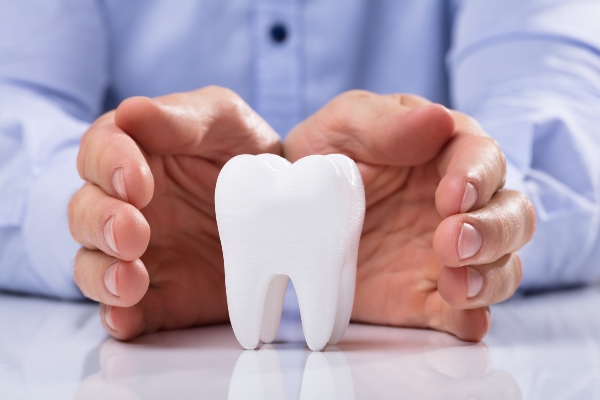 One of the leading causes of anxiety surrounding dental procedures is a fear of pain. However, most offices provide several pain management options for patients undergoing more intense dental work. In many situations, injections are an efficient and effective form of anesthesia for several common procedures, such as fillings, crowns and root canals.
One of the leading causes of anxiety surrounding dental procedures is a fear of pain. However, most offices provide several pain management options for patients undergoing more intense dental work. In many situations, injections are an efficient and effective form of anesthesia for several common procedures, such as fillings, crowns and root canals.
Types of dental anesthesia
When a dentist prescribes a treatment that requires more invasive procedures, a numbing agent may be needed to ensure thorough completion with minimal pain and discomfort. Depending on the type of procedure and patient needs, either general or local anesthesia may be used.
General anesthesia
While heavy sedation is typically reserved for surgeries, some offices may utilize general anesthesia during intense procedures for patients with severe dental anxiety. Medications may be administered intravenously or with a mask.
Local anesthesia
In most situations, a dentist will only numb the affected and adjacent areas to manage pain. Sometimes, a topical numbing gel is all that is needed to ease discomfort. More frequently, a dentist will inject a numbing agent to block the pain receptors in the affected nerves. There are several medications that accomplish this task:
- Prilocaine (Citanest®)
- Lidocaine (Xylocaine®)
- Articaine (Septocaine®)
- Mepivacaine (Carbocaine®)
- Bupivicaine (Marcaine®)
The dentist will choose the appropriate option based on the size and location of the affected area and patient needs.
What to expect with numbing shots
It is helpful to talk with a dental professional and ask questions about the pending treatment, such as the anticipated length of the procedure and number of injections required. Patients should discuss the appropriate preparations before the day of the appointment to maintain safety and minimize anxiety.
Initial injections
While there is some initial discomfort associated with dental injections, the pain is usually minimal, especially at the hands of a gentle and experienced professional. Typically, a topical numbing gel is applied to reduce sensitivity at the injection site. Depending on the type of treatment, one or several injections may be needed. After five to 10 minutes, the numbing agent will take full effect and the dental procedures can begin.
Treatment after anesthesia
During treatment, patients may feel pressure but should not experience pain. However, individuals process anesthesia at different rates, so it is important to notify the dentist if the numbness begins to wear off. In these situations, additional injections may be required, especially during lengthy dental procedures. Fortunately, most patients do not feel these additional injections, as some of the anesthesia is still effective.
Follow-up care
Once the procedure is complete, some numbness may linger for a few hours. Depending on the targeted area, it may be difficult to control the lips and tongue. The loss of feeling should subside quickly, but most dentists recommend waiting to eat until the numbness disappears completely. Otherwise, it is possible to unknowingly injure the soft tissues of the mouth while eating.
Check out what others are saying about our dental services on Yelp: Dental Procedures in Chicago, IL.
Conclusion
Numbing shots are an effective form of local anesthesia for many dental procedures. It is important to discuss expectations with a dentist to prepare for upcoming injections. With proper administration, injections can help block pain during treatment.
Request an appointment or call Joyful Dental Care at 773-786-9560 for an appointment in our Chicago office.
Related Posts
Seeking an emergency dentistry solution to tooth avulsion must happen right away. In this type of dental emergency, your chances of getting your tooth back in your mouth are higher if you go to the urgent dental care clinic. Knowing how this dental facility can help your situation can give you hope for recovering your…
Emergency dentistry can tell you a lot about tooth pain. They can tell you what the cause is, how to treat it, and what to do to prevent it in the future. Tooth pain is typically a sign there is something wrong with a tooth. The pain typically lingers until the root cause of it…
After experiencing a tooth injury, you have a better chance of saving your tooth if you go to an emergency dentistry office as soon as possible. Even if the tooth is knocked out, attempt to locate and bring along any tooth fragments. You are probably in a lot of pain if you have had a…



